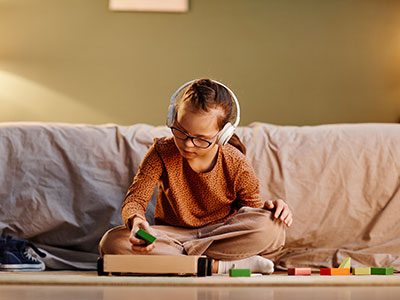My son is experiencing anger as a result of the pandemic/lockdown. What can I do?
The main thing to do for anger – as well as anxiety, depression and many of the other emotional difficulties children might be having right now – is to validate your child’s emotions. Let them know you understand what they’re feeling. You might not fully sympathize, but you can empathize. Also, let your child know that you’re angry about the current situation too, because you had plans and they didn’t work out either. For example, if your child is really angry that they had a birthday party they were looking forward to and they can no longer go, you should validate that. Let them know that you see and hear their frustrations and that you also had a trip planned to visit your friends and you’re angry that you can’t go. But do so calmly with the goal of expressing valid emotions in a useful way. Talking about being upset in a calm sympathetic way can serve as a model for your son to express himself without being disruptive or aggressive.
Also, direct your child’s attention to what they can do to cope with the situation. For example, tell them that you can see that they’re angry because they can no longer see their friends, but then suggest that you play a game together or talk to that friend on the computer. Give your child alternate activities they can do, and focus on the positive. Create time and space for your children to engage in new activities to increase their positive experiences. Practice mindfulness and relaxation activities with your children; there are several videos available for all age groups online. Acceptance of the current restrictions and limitations may also help them shift attention what they can do versus what they cannot.
It’s also important to remain calm and not escalate when your child is angry. People tend to raise their voices when they’re being yelled at, which only escalates the situation. Instead, remember that when you’re angry, you’re probably not thinking fully rationally. So let your child have their space and give yourself some space too so you can both calm down. Then, come back and have a conversation when everyone is calm.
You can find more mental health advice from Dr. Amatya in this Family Town Hall from the Children’s National Child Health Advocacy Institute. And you can find additional mental health resources here.
 https://riseandshine.childrensnational.org/wp-content/uploads/2026/02/olympics-feature.png
300
400
webteam
https://riseandshine.childrensnational.org/wp-content/uploads/2017/11/childrens_riseandshine_logo.jpg
webteam2026-02-05 16:41:512026-02-06 08:51:52What the Winter Olympics can teach our children
https://riseandshine.childrensnational.org/wp-content/uploads/2026/02/olympics-feature.png
300
400
webteam
https://riseandshine.childrensnational.org/wp-content/uploads/2017/11/childrens_riseandshine_logo.jpg
webteam2026-02-05 16:41:512026-02-06 08:51:52What the Winter Olympics can teach our children





















Leave a Comment
Want to join the discussion?Feel free to contribute!